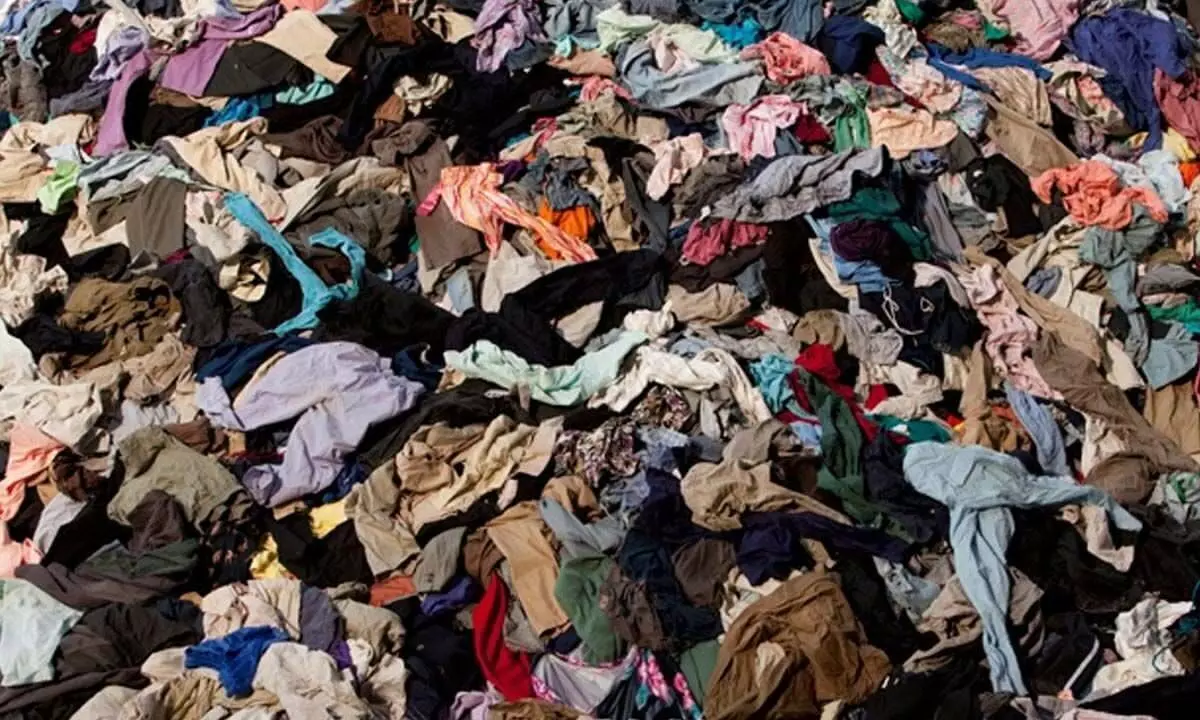Generating wealth out of textile waste
Waste is actually asset - so they say. And moves are afoot to turn waste into assets of various forms in many parts of the world including India.
image for illustrative purpose

Waste is actually asset - so they say. And moves are afoot to turn waste into assets of various forms in many parts of the world including India. This, in turn, has given rise to recycling of various products, which otherwise we throw out as wastes after their use. Textile recycling, for instance is the process of recovering fiber yarn or fabric and reprocessing the textile material into useful products.
Textile waste products are gathered from different sources and are then sorted and processed depending on their condition, composition and resale value. Clothing recycling, on its parts, is part of textile recycling. It involved recovering old clothing and shoes for sorting and processing. End products include clothing suitable for re-use, cloth scraps or rags as well as fibrous material. Interest in garment recycling is rapidly on the rise, thanks to environmental awareness and landfill pressures. For entrepreneurs also, it provides a business opportunity. In addition, various charities also generate revenue through their collection initiatives for old clothing.
Kolkata-based Footstep Foundation, for instance, has teamed up with FACES and MTC Group, the four decade old company that strives to make a significant contribution towards resource management and conservation by providing raw material in the form of scrap, to recycling industries in India and across the world, to organise a trash to wealth initiative RE-Turn.
It's a mission to develop skill among girls and women to use old clothes to make new household useful products like tablecloth, table mats, coaster, table runners, pillow and cushion covers, bed covers, floor rugs etc. Through this project, not only efforts will be made to create a circular economy but also create a sustainable livelihood renewal initiative.
Mind you that every piece of clothing you are wearing has gone through a complex manufacturing process that uses a high amount of electricity, water and other energy sources. Recycling clothes saves energy by reducing or eliminating the need to make materials from scratch. One has to keep in mind that we can't keep growing more cotton and producing new clothes. To feed a growing population's appetite for consumption, we have to start recycling, or as we like to call it, pure cycling. Cotton, the primary fabric used in t-shirts, is a water-intensive crop and can be destructive for the soil. Given that it's not a food crop, it also takes away precious resources and arable land, which could be used to feed. Interestingly, by some estimates, current cotton farming could fill up land the size of modern-day Turkey.
In India, more than 1 million tonnes of textiles are thrown away every year, with most of this coming from household sources, according to the Indian Textile Journal. Textiles make up about three per cent by weight of a household bin. It is also the third-largest source of municipal solid waste in India.
Therefore, what this Kolkata-based organisation led by a woman entrepreneur Sakuntala Chanda has kicked off, can truly be a game changer, if proper awareness is created and the plan is properly executed. Return of your old and used clothes can be your return to the society and environment.

